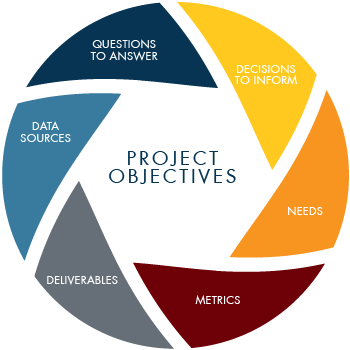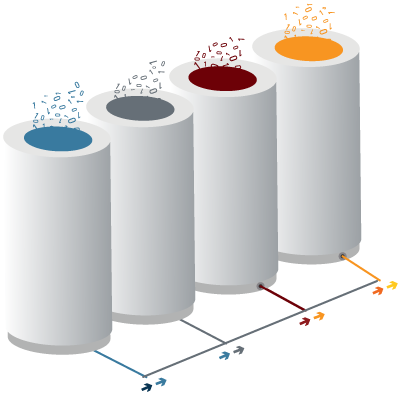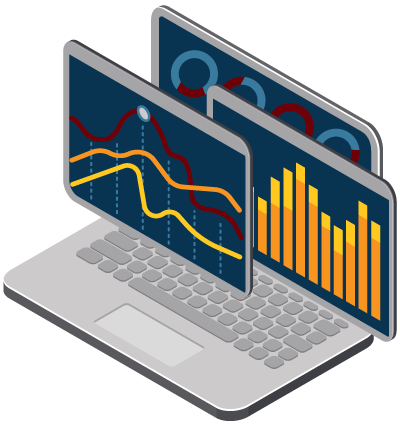Recognizing that a lack of usable data is one of the biggest barriers to advancing pretrial justice, Luminosity’s Data Analytics team works with cities, counties, and states to analyze justice system data. Although analysis of data from one justice agency can be useful, analyzing data from multiple justice agencies is exponentially more valuable in identifying justice system trends and laying the foundation for implementation of best practices. Luminosity’s Data Analytics Team is dedicated to transforming siloed data from independent justice system agencies into usable, accessible, interpretable, and actionable data. The transformed data allows for the effective monitoring of system performance in real time; empowers strategic and data driven decisions; fuels research and the discovery of best practices; increases transparency and accountability; and illuminates actionable insights.
The process of analyzing justice system data includes data identification, acquisition, cleansing, transformation, analysis, interpretation, modeling, and visualization. Our methodological approach relies on a five-stage process, which is customized for each client based on their individual circumstances and needs. We execute our approach in partnership with diverse groups of stakeholders. Stakeholders are engaged and consulted throughout the entire process including when defining the project objectives, determining project feasibility, transforming the data, conducting statistical analysis, and communicating the results. Continuous engagement, communication, and feedback loops improve the accuracy of the results, increase transparency, and improve the quality and trust of the deliverables. Read on for descriptions of each stage of Luminosity’s methodological approach for Transforming Siloed Data Into Justice System Insights.

Define Project Objectives
It is critical to understand the context of a project from the outset. We work with our clients to ascertain the questions that must be answered, identify the decisions that need to be informed, determine the reasons the insights are needed, and define the deliverables that are expected.

Determine Project Feasibility
A project might be highly desirable, but it may not always be feasible. This stage of the project is focused on exploring whether the data needed to complete the project are collected, accessible, and usable.

Transform the Data
Our Data Analytics team possesses vast knowledge and expertise in transforming raw justice system data. We extract, cleanse, conduct quality assurance checks, and validate each data source.

Conduct Statistical Analysis
This stage begins with exploratory data analysis to discover patterns, identify anomalies, and test assumptions. Exploratory data analysis relies heavily on statistical methods and graphical representations of the data.

Communicate the Results
The final stage of analyzing justice system data involves preparing the results in ways that stakeholders can easily consume, respond to, and act on.